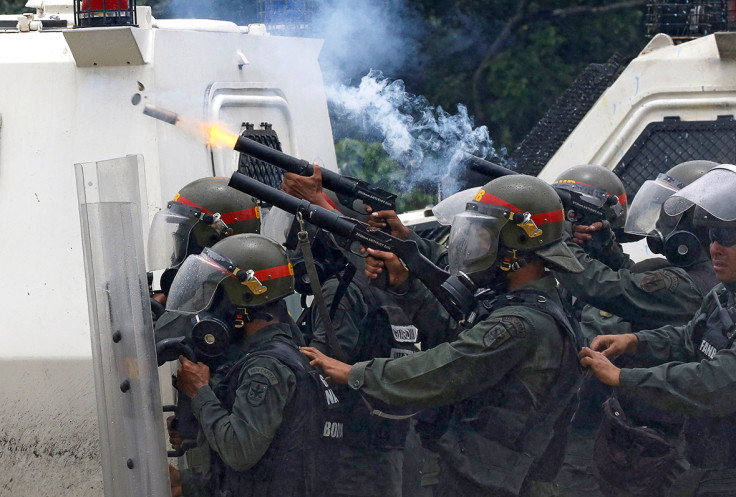Venezuelan government accused of using military courts against its critics
The Organisation of American States' secretary general has compared the country to a dictatorship.
Venezuela's opposition parties, non-government organisations and international bodies have accused the government of using military courts against its critics.
A local human rights organisation said around 50 protesters, who were against President Nicolas Maduro, have been detained, while, the Organisation of American States' (OAS) secretary general compared the country to a dictatorship.
Government officials have not confirmed the arrests or the military processing of civilian suspects, the BBC reported.
"The right and basic guarantees of due process no longer exist in Venezuela from the moment a civilian is forced to appear before a military court," Luis Almagro, the Uruguayan head of the OAS, said on Monday, 8 May.
In April, the Latin American country threatened to withdraw its membership from the US-based OAS, accusing the organisation of interfering in its internal affairs.
President Maduro has also called for rewriting the constitution in a bid to put an end to ongoing protests against his government. The demonstrations have taken the lives of more than 30 people and injured over 300 in several rallies over the past month.
However, the government's opponents and critics have criticised Maduro's move towards a constitutional shake-up, calling it a coup.
The move has also intensified calls from protesters for early presidential elections, which are scheduled for late 2018. "We don't need a new constitution, we need a new president," one anti-government woman protester said as her fellow demonstrators cheered.
Health crisis
Meanwhile, the health ministry has released a report revealing a sharp rise in infant mortality and maternal death rates in the country.
The report that comes after a gap of almost two years noted that the number of women dying during delivery or within a month of giving birth had risen by 65%, while child death cases jumped by 30%, reflecting the country's health crisis.
While Maduro's critics blame him for the troubles in the country, the president has alleged that the opposition and business community are responsible for the shortage of essential supplies. The socialist president has accused his opponents of blocking the supply of medicines to create a health crisis, which would help them plan a coup against him.
The country's economic woes are likely to take a turn for the worse, with the International Monetary Fund (IMF) predicting that inflation will rise to 720% in 2017 and to over 2,000% in 2018.
Venezuela's acute shortage of almost everything from food to vaccines has forced thousands to cross the country's borders in search of a better living. People are moving to Brazil and Colombia, seeking treatment in public hospitals.
In Brazil, the state of Roraima has declared an emergency and sought government funds to deal with the influx. The country's ministry of justice has said that another 5,400 Venezuelans looking for basic food, medicine and temporary jobs are expected to come into Roraima and Amazonas states.

© Copyright IBTimes 2025. All rights reserved.





















